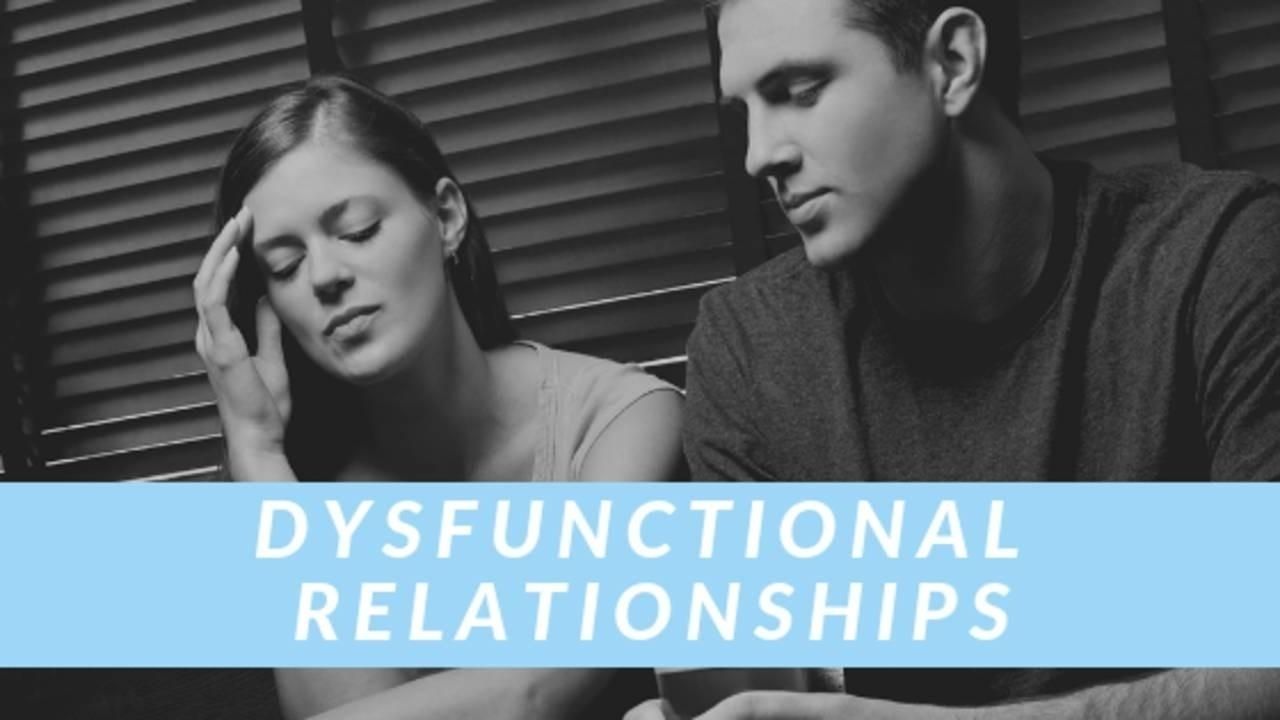Would You Know If You Were In A Dysfunctional Relationship?
Definition
The terms “toxic,” “dysfunctional,” and “codependent” are used to describe relationships that are not working. Although experts decipher differences in their meanings, the terms are often used interchangeably. That is because they all have one thing in common – unhealthy interactions that may be emotionally or physically harmful to the people in them.
It is common sense to say that we enter relationships expecting them to be emotionally supportive, mutually enhancing and full of good communication. Unfortunately, sometimes we feel worse after spending time with our significant other.
Why don’t we naturally gravitate towards those with whom we are compatible and who make us feel good? The simple answer is that unhealed wounds from our early childhood attachments are carried into our adult relationships. Instead of looking to ourselves to heal these wounds, we tend to expect our partners, who may also be carrying around past wounds, to make us feel whole…..a recipe for a dysfunctional partnership.
Toxic Relationship = Dysfunctional Relationship = Dead End Relationship
The Warning Signs
Sometimes, it’s hard to know if your relationship is toxic, especially if it’s the only kind of relationship you have ever known. Nevertheless, there are some distinct red flags that you can look for in order to identify your own and your partner’s dysfunctional behaviors.
If your needs for security were not met in childhood, chances are your insecurities will present themselves in one of two types of dysfunctional behavioral patterns in your adult partnerships; co-dependency and counter-dependency. They are flip- sides of the same coin – your incomplete self (“I”) seeking an identity.
Let’s first take a look at the symptoms of co-dependency:
- Feeling trapped in abusive, controlling relationships.
- Having low self-esteem.
- Needing constant approval and support from your partner to feel good about
yourself. - Feeling powerless to change your destructive relationship Being a people-pleaser.
- Being unable to experience true intimacy and love, but craving it
Clinging to others. - Feeling insecure and incompetent.
- Acting self-effacing.
The following are typical counter-dependent behaviors:
- Pushing others away.
- Acting strong and invulnerable.
- Being detached from your feelings.
- Blaming your partner for relationship problems.
- Controlling others.
- Reluctance to ask for help.
- Feeling anxious in close relationships.
In case you have become “comfortable” in your dysfunctional relationship, and are unable to determine if it is healthy or not, below are some questions you may ask yourself
- Do you and your partner nurture and support one another?
- Do you trust each other?
- Do you experience yourself and your partner to be on the same team?
- Are your goals similar?
- Do you and your partner encourage one another’s growth and exploration?
- Do you have each other’s backs?
- Are you able to resolve your differences?
- Do you feel more alive?
Cutting The Cord To Dysfunctional Relationships
In order for a toxic relationship to heal, each party must be willing to take full ownership of their contribution to the dysfunction. Foremost, that means looking from within, not from without. It means developing your own identity(“I”), acknowledging why you act and react the way you do, and mastering your toxic behaviors. For a partnership (“we”) to be healthy and functional, both partners (“I” and “you”) must be well-defined.
As each of you assumes responsibility for your individual development, together (“we”) you can question what in the relationship is not working and how you can make it work. Remember, healing a dysfunctional relationship is not about looking for a villain. As a team, the functional question to ask yourselves is not “Whose fault it is?” but “What can we do mutually to solve the problem?”
On the other hand, if you find yourself trapped in a damaging relationship in which your partner is unwilling to claim their role in it and continues to use toxic weapons such as intimidation, guilt, shame, withholding affection….look for the exit door. No matter how much you think you can change your partner for the better, you simply cannot.
It is my sincere hope that all information on my website provides you with content that inspires you to enhance your relationships. These materials are not intended to be a substitute for my counseling services. If you are ready to make that leap, please click here to set up a complimentary consultation.


0 Comments